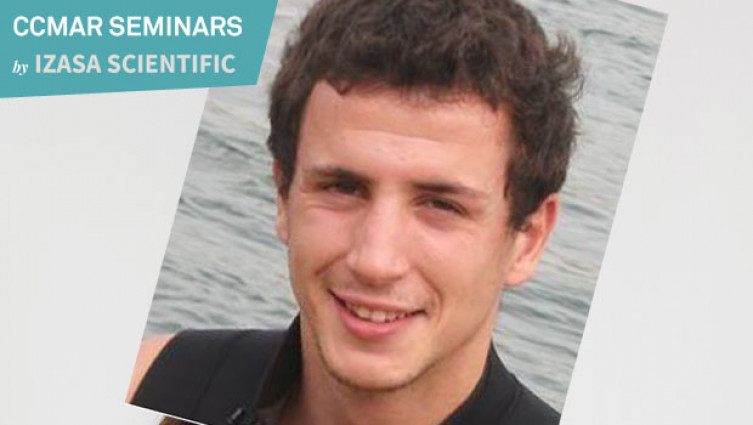Complex cognition displayed by invertebrates and partners during interspecific cooperative hunting
CCMAR SEMINARS
8th of March 2018, at 1:30 pm
Anf. A (CP)
Complex cognition displayed by invertebrates and partners during interspecific cooperative hunting
Eduardo Sampaio
(Marine and Environmental Sciences Centre, Faculdade de Ciências da Universidade de Lisboa)
Abstract
How cephalopod cognitive prowess, i.e. what is broadly defined as "intelligence", compares to what is reported for vertebrates is still a matter of intense debate. Brain evolution has often been correlated with the demands of social life that constitute complex cognitive challenges, since cooperative partners rely upon the ability of understanding non-immediate rewards, constantly re-evaluate costs and benefits, and use partner control mechanisms. Notwithstanding their solitary lifestyle, interspecific cooperative hunting between cephalopods and fish is widespread, registering complex interaction mechanisms (such as direct communication) which can be particularly relevant in multi-partner groups. Within this context, we assessed the dynamic role of each player in the group, whether individuals signal each other, respond to specific cues, how they incorporate social information, enforce social rules, and more. Ultimately, in this talk, I will atempt to disentangle these understudied multi-specific foraging phenomenona and provide a clearer perception on the cognitive capabilities of cephalopods (and fish alike).
CV
I hold a Master’s Degree in Marine Biology and Ecology since 2012, granted by Instituto de Ciências Biomédicas Abel Salazar (ICBAS), University of Porto. After graduation, I worked through several project grants, primarily focusing on assessing how climate change variables (ocean warming, acidification, and hypoxia) affect the ecology, behaviour and neurophysiology in a wide array of marine organisms. Throughout the years I developed a keen interest on cephalopods, fruit of their incredible behavioural repertoire and cognitive capabilities. As they are a great model to assess neurological modifications, my PhD (starting from October 2017) seek to unravel new depths of cognitive complexity in cephalopods (particularly octopus species), as well as impairments associated with climate change, on behaviour, response to natural stimuli and neurological processing. I am particularly interested on understanding their prowess in problem-solving and how the challenges posed by social life are interpreted by these commonly lonely species. I am currently a PhD student at MARE – ULisboa, Laboratório Maritimo da Guia and the Stazione Zoologica Anton Dohrn (Naples, Italy). I have also authored or co-authored 11 scientific peer-reviewed papers. For more info please check https://www.researchgate.net/profile/Eduardo_Sampaio2 or http://www.ruirosalab.com/eduardo-sampaio.html.


